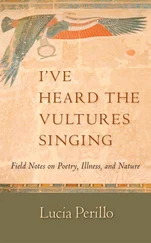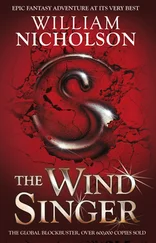“So what are you going to do?”
He wiped his legs with a towel as he thought this over.
“I’m thinking of writing novels. What do you think?”
“Of course I think it’s a great idea.”
He nodded.
“What kind of novels?”
“Good ones. By my standards, anyway. Me, I don’t think I have talent or anything. At least, I think that my writing has got to be the result of some epiphany or it won’t have any meaning. Don’t you think?”
“I agree.”
“I’ve got to write for myself…or maybe for the cicadas.”
“Cicadas?”
“Yep.”
The Rat fiddled around for a moment with the Kennedy half-dollar hung around his neck as a pendant.
“Some years back, me and this girl went to Nara. It was a terribly hot summer afternoon, and we’d been walking on these mountain trails for three whole hours. During that time, to give you an idea, we had for company: the shrieking of wild birds shooting out of the trees, these monster cicadas buzzing across the paths between the rice fields, and the like. ‘Cause it was hot as hell, you know.
“After walking for a bit, we sat on a hillside covered thick with summer grass, and there was a nice breeze blowing the sweat off our bodies. There was a deep moat stretching out below the hill, and on the other side was this mound, covered with trees, looking like an island. It was a burial mound. For some Emperor from a long time ago. You ever seen one?”
I nodded.
“Looking at that, I started thinking, ‘why did they make such a huge tomb for him?’ Of course, every grave has meaning. Like they say, everybody dies sometime. They teach you that.
“Still, this was just too big. Bigness, sometimes it changes the very essence of something into something else entirely. Speaking practically, it was like this didn’t even look like a tomb. A mountain. The surface of the moat was covered with frogs and water plants, and the whole edge of it was covered with cobwebs.
“I stared at it in silence, the wind from the water clearing my ears. What I felt at that time, I really can’t even put into words. No, wait, it wasn’t really a feeling. It was its own completely-packaged sensation. In other words, the cicadas and frogs and spiders, they were all one thing flowing into space.”
Saying this, the Rat drank the last sip of his already-flat cola.
“When I’m writing, I’m reminded of that summer afternoon and that overgrown burial mound. Then I think this: the cicadas and frogs and spiders, the summer grass and the wind, if I could write for them, it would be a wonderful thing.”
Finishing his story, the Rat folded both his arms behind his head and stared quietly up at the sky.
“So…have you tried writing anything?”
“Nope, I can’t write a single line. I can’t write anything.”
“Really?”
“‘Ye are the salt of the earth.’”
“What?”
“‘But if the salt hath lost its savor, wherewith shall it be salted?’”
So said the Rat.
When the evening sun started to dim, we left the pool and went into the hotel’s small bar, which was filled with Mantovani’s Italian mood music, and drank cold beer. Through the large windows, we could clearly make out the lights of the harbor.
“What happened with the girl?” I’d made up my mind to ask.
The Rat wiped the foam off his mouth with the back of his hand, then gazed at the ceiling as if suddenly remembering something.
“I’ll come right out and say it, I wasn’t going to say anything to you about that. Because it was stupid.”
“But you tried once, didn’t you?”
“Yeah. But I thought it over all night and gave up on the idea. There are some things in the world you just can’t do anything about.”
“For example?”
“Cavities, for example. One day your tooth just starts hurting. Someone comforting you isn’t going to make it stop hurting. When that happens, you just start to get mad at yourself. Then you start to get really pissed off at the people who aren’t pissed off. Know what I mean?”
“Kind of,” I said, “still, think about this. Everyone’s built the same. It’s like we’re all riding together on a broken airplane. Of course there are lucky people, there are also unlucky people. There’re tough people, and weak people, rich people, and poor people. However, not a single person’s broken the mold with his toughness. We’re all the same. Everyone who has something is afraid of losing it, and people with nothing are worried they’ll forever have nothing. Everyone is the same. The sooner you realize that, the sooner you’ll want to get stronger. Even if you’re just pretending. Don’t you think?
There aren’t any real strong people anywhere. Only people who can put on a good show of being strong.”
“Can I ask you a question?”
I nodded.
“You really believe all that?”
“Yeah.”
The Rat was silent for a moment, fixing his gaze on his beer glass.
“You sure you’re not bullshitting me?” the Rat said earnestly.
After I drove the Rat back to his house, I dropped by J’s Bar.
“You talk to him?”
“I did.”
“That’s good.”
Saying that, J set a plate of French fries in front of me.
In spite of Derek Hartfield’s large volume of work, when it came to the subjects of life, dreams, love, and the like, he was an extremely rare writer. Comparatively serious (‘serious’ meaning stories without appearances by spacemen and monsters) was his 1937 semi-autobiographical book Halfway ‘Round the Rainbow, in which, through all the irony, jokes, insults, and paradoxes, he revealed just a little bit of his true feelings.
“My most sacred books are in this room, and by that I mean the stack of alphabetized phonebooks on which I swear to tell the whole truth and nothing but. The truth is this: life is empty. However, help is available. If you know that from the outset, it’s almost as if life’s not really meaningless at all. We’ve really worked tirelessly to build it all up, and then tried with all our might to wear it down, and now it’s empty. No matter how hard you work, or how hard your try to bring it down, none of that’ll be written here. ‘Cause it’s a real pain in the ass. For those of you who really want to know, you can read about it in Romain Rolland’s novel Jean-Christophe. It’s all there, written out for you.”
The reason Hartfield was so terribly enamored with Jean-Christophe is, quite simply, because it diligently outlined the life of one person from birth until death and, moreover, it was a terribly long novel. In his opinion, a novel could present information even better than graphs, chronologies, and the like, and he thought the accuracy was comparable as well.
He was always critical of Tolstoy’s War and Peace.
‘Of course, I have no problem with the length of it,’
he noted. ‘It’s that it lacks a clear conceptualization of outer space, and the author has given the reader a mishmash of impressions.’ The phrase
‘conceptualization of space,’ the way he uses it, usually meant ‘sterility.’
The novel he liked the most was A Dog of Flanders.
‘Hey, you. Can you believe a dog died just for a picture?’
During an interview, a newspaper reporter once asked Hartfield this:
“Your book’s protagonist, Waldo, has died twice on Mars, and once on Venus. Isn’t this some kind of contradiction?”
Hartfield’s reply was this:
“Do you know how time flows in the void of space?”
“No,” he responded, “but nobody knows that.”
“If writers only wrote about things everybody knew, what the hell would be the point of writing?”
* * *
Читать дальше












